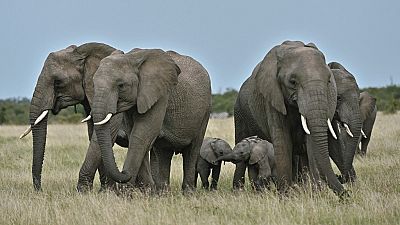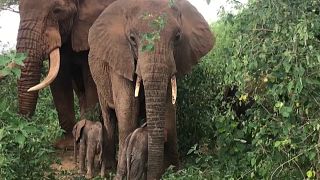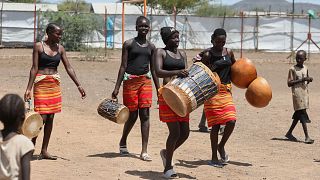Kenya
Kenya lost 62 elephants last year within five months due to drought even as the Wildlife ministry was preparing to build water pans in National Parks to avoid more deaths.
Addressing parliament, the Tourism and Wildlife Cabinet Secretary Najib Balala said the elephants were lost between August and December 2021.
“Through August to December, 62 elephants have died due to drought. We are rushing to build water pans in our parks including Tsavo that is most affected,” Mr Balala told the National Assembly’s Committee on Finance.
He said the Kenya Wildlife Service (KWS) lacks sufficient resources to put up water pans in the drought-affected areas.
“We as the Tourism Promotion Fund (TPF) are currently considering a request from the State Department for Wildlife of Sh200 million for the establishment of water pans, drilling of boreholes, dams and provision of water in Tsavo National Park,” Mr Balala said.
Mr Balala said the Fund, meant for tourism promotion activities would intervene and allocate monies for the provision of water services to starving wildlife.
“We are considering the requests given the loss of 62 elephants due to drought within a period of four months,” Mr Balala told the committee.
Mr Balala said revenues generated by the KWS dropped from Sh4 billion annually to Sh1 billion following the Covid-19 economic fallout.
“We are struggling to pay their salaries and we are working to achieve our objectives as a sector,” Mr Balala said.
Parliament last year directed the National Treasury to set aside Sh3.2 billion to cover salaries and operations of KWS staff following the decline in revenue collection from park fees on account of coronavirus.
The State Department for Wildlife had warned that KWS would collect about 20% of the projected Sh4.6 billion annual revenue from park fees due to reduced tourism activities caused by the Covid-19 pandemic.
The prolonged drought has taken a heavy toll on wildlife conservation activities in counties hardest hit by famine.
In February this year, a senior official for the U.N. Food and Agriculture Organization stated that drought has caused the death of 1.5 million livestock and drastically cut cereal production.












00:28
Nairobi hawker shot at close range by police declared brain dead
02:14
Scientists find way to identify elephant ivory disguised as legal mammoth ivory
01:07
Kenya prepares for first anniversary of Finance Bill protests
01:52
UN's crucial humanitarian aid work faces a clouded future amid cuts in funds
02:00
Refugees in Kenyan camp face hunger after USAID funding freeze
01:00
Pix of the Day: June 19, 2025